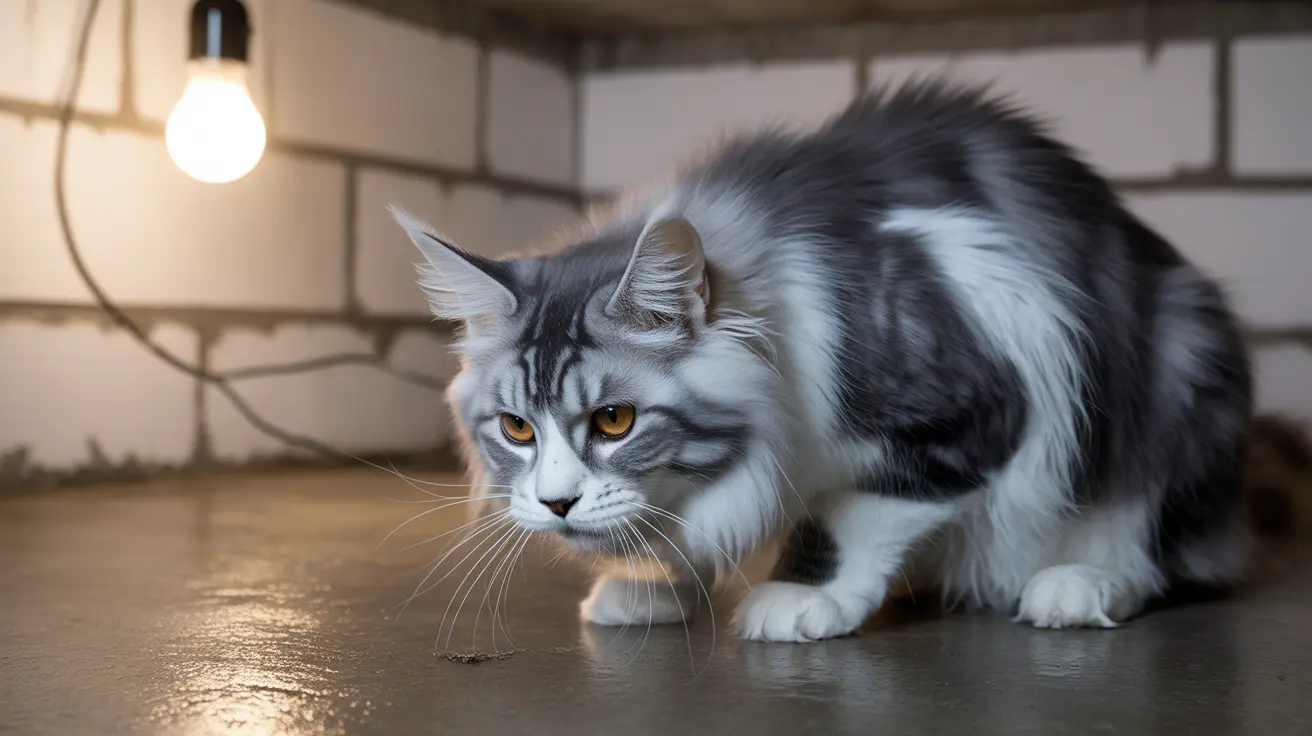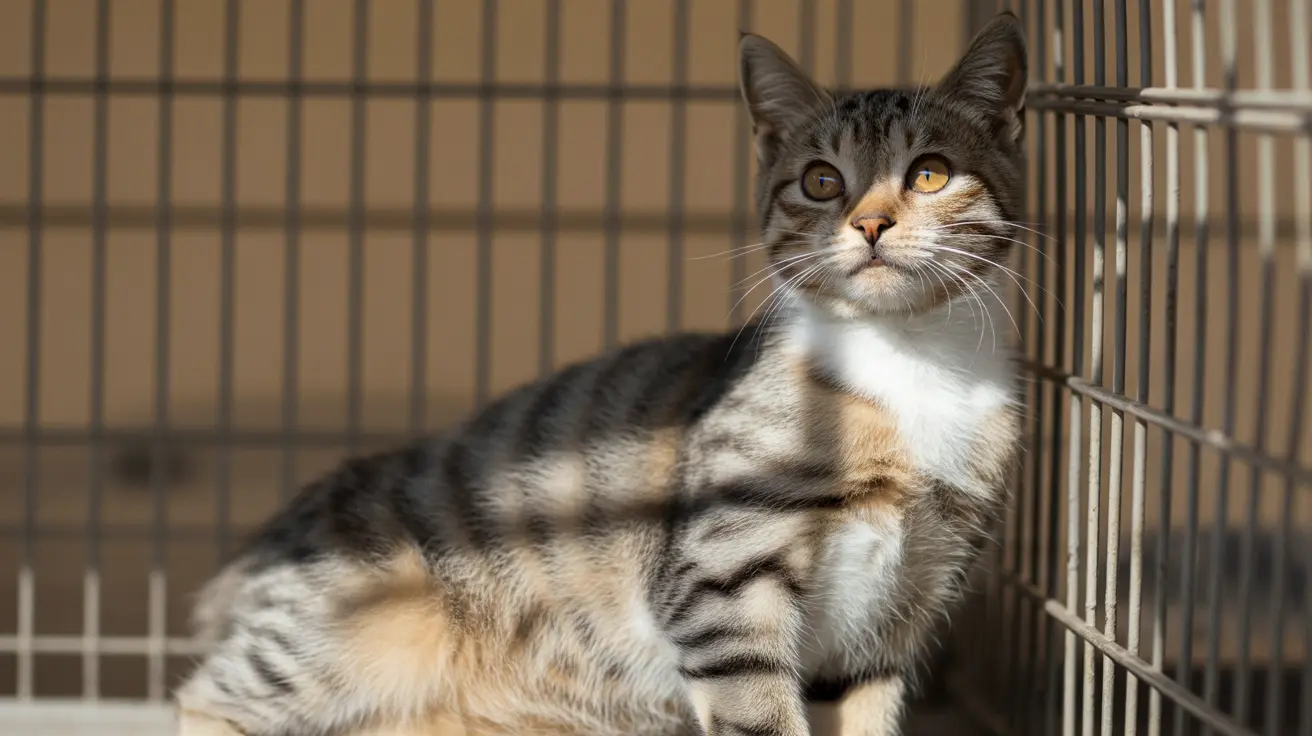Common Causes of Cat Pee Smell in Basements
Actual Cat Urine
Cat urine contains high concentrations of uric acid and ammonia, making it particularly pungent. When cats urinate in basements, the odor can become trapped in porous materials like concrete, wood, and fabrics. The problem is compounded by basement humidity, which can reactivate dried urine crystals, causing the smell to persist or return.
Mold and Mildew Growth
Certain types of mold, especially black mold (stachybotrys), can produce an odor remarkably similar to cat urine. These fungi thrive in the damp, poorly ventilated conditions often found in basements. Regular inspection and moisture control are essential for preventing mold growth.
Plumbing Problems
Sewer gases escaping through dry P-traps, damaged seals, or compromised vent pipes can create ammonia-like odors that mimic cat urine. These issues require prompt attention from a qualified plumber to prevent both odors and potential health hazards.
Dead Animal Decomposition
Unfortunately, deceased rodents or other small animals in wall cavities or crawl spaces can produce strong odors similar to cat urine during decomposition. Professional removal and thorough cleaning are often necessary.
Effective Solutions for Eliminating the Odor
Enzymatic Cleaners
For actual cat urine, enzyme-based cleaners are the most effective solution. These products contain special bacteria that break down uric acid and other odor-causing compounds at the molecular level. Allow the cleaner to fully penetrate affected areas and air dry completely.
Moisture Control
Install dehumidifiers and ensure proper ventilation to control basement humidity. Fix any water leaks promptly and consider using moisture barriers in particularly damp areas. This helps prevent mold growth and reduces the reactivation of dried urine crystals.
Professional Remediation
For severe cases or when the source is unclear, professional remediation services can:
- Conduct thorough inspections using UV lights and moisture meters
- Remove contaminated materials
- Apply commercial-grade treatments
- Address structural issues contributing to the problem
Preventive Measures
Once you've addressed the immediate problem, prevent future occurrences by:
- Maintaining proper ventilation
- Regularly checking for plumbing issues
- Sealing entry points for animals
- Using air purifiers with activated carbon filters
Frequently Asked Questions
Why does my basement smell like cat pee even though I don't have a cat?
This smell can be caused by mold growth, sewer gas leaks, or decomposing animals in wall cavities. Each requires different treatment approaches, so proper identification of the source is crucial.
How can I identify if the cat pee smell in my basement is from actual urine, mold, or sewer gases?
Use UV lights to detect cat urine (it glows), look for visible mold growth, and check plumbing fixtures for leaks or dry traps. Professional inspection may be necessary for accurate diagnosis.
What are the most effective cleaning methods to permanently remove cat urine odor from basement floors and fabrics?
Enzyme-based cleaners are most effective for cat urine. Apply thoroughly, allow proper dwell time, and ensure complete drying. For fabrics, combine enzyme treatment with thorough washing and air drying.
How can I prevent cat pee smells from coming back in my basement after cleaning?
Control moisture levels, maintain proper ventilation, seal porous surfaces, and address any underlying plumbing or structural issues that could contribute to odors.
Could dead animals or plumbing issues cause a basement to smell like cat urine, and how do I address these problems?
Yes, both can cause similar odors. For dead animals, professional removal and area sanitization are necessary. Plumbing issues require inspection and repair by a qualified plumber to prevent sewer gas leakage.
Conclusion
While a basement that smells like cat pee can be frustrating, understanding the potential causes and taking appropriate action can resolve the issue effectively. Remember that proper diagnosis is key to implementing the right solution, and don't hesitate to seek professional help for persistent or severe cases.






